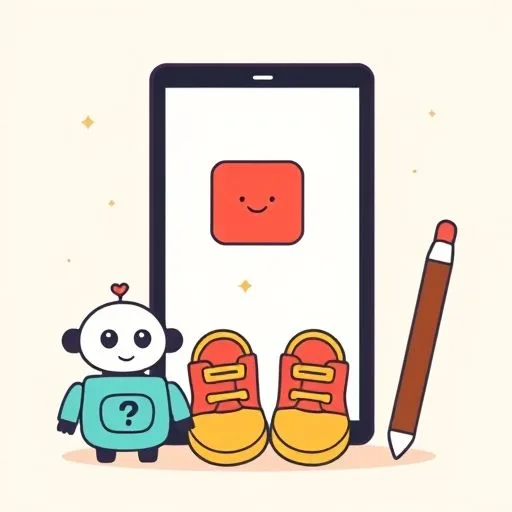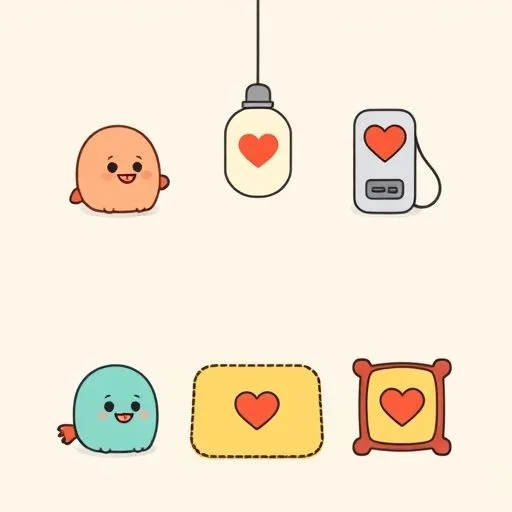
That evening comes to mind when we finally caved and got the educational game everyone was talking about. You sat cross-legged on the floor with the tablet while I kept our youngest from chewing the stylus. The AI tutor was supposed to adapt to each child’s learning pace, remember? Instead, it kept suggesting multiplication drills to our preschooler and nursery rhymes to the ten-year-old. I watched you bite back laughter, then seamlessly pivot – turning the malfunction into a game of teaching the teacher. In that moment, I realized we weren’t just troubleshooting technology; we were witnessing a mirror of our own parenting journey – beautifully imperfect, occasionally baffling, but always worth navigating together.
The Beauty of Buffering Moments

Watching those digital characters get stuck in a loop feels strangely comforting, doesn’t it? Like when bedtime routines devolve into endless requests for water, or when we’re trapped in the why vortex during school drop-off. There’s poetry in these glitches – both silicon-based and human.
I’ve marveled at how you transform these hiccups into connection points. When the language app mispronounces words and the kids erupt in giggles, you join them. When the smart home insists we need milk when we’re drowning in it, you wink and say even robots forget things sometimes. Your grace with technology’s flaws teaches our children that imperfection isn’t failure – it’s an invitation to create solutions together.
Code Updates and Growth Spurts

When I read about developers releasing patches to fix AI behavior, I smile thinking about our evolving family strategies. Remember last year’s nap schedule that worked perfectly until it didn’t? Our parenting journey constantly needs debugging too.
You approach these changes with such that practical wisdom you have. The way you noticed our child responding differently to praise? How you researched, adjusted, then shared your insights with me over late-night tea? That’s you reading our family’s code – knowing when to stick with the program and when to rewrite it.
Maybe these AI systems need constant tuning because emotional intelligence defies algorithms.
Your ability to sense when a child needs space versus a hug, or when a tantrum signals hunger versus overwhelm – that’s the irreplaceable human update no software can replicate.
The Multiplayer Mode of Parenting

What moves me most in watching you navigate both technology and family life is your commitment to co-op mode. Just like those gaming sessions, parenting works best when we team up. When the collaborative game feature crashes and siblings start bickering, you don’t just fix it – you turn it into a team-building exercise.
I’ve learned from you that our best tech moments happen off-screen. That time the power went out, and you turned device panic into shadow puppet theater. Our makeshift charging station by the entryway that became a hub for daily check-ins. You constantly rewrite the script – showing that connection isn’t about seamless functionality but about showing up for the messy, beautiful process.
These gaming AI stumbles remind me we’re both players and developers in our family story. We release updates through whispered midnight conversations, debug through trial and error, and celebrate the small victories. Every glitch we navigate together adds another line to the love-filled code of our shared journey.
The Save Point That Matters Most

Late at night, after we’ve reset routers and tucked in stray toys, I realize we don’t need perfect technology – or perfect parenting. What we’re building is more resilient than any program.
Your laughter when the robot vacuum gets tangled in curtains, your patience with the endlessly updating apps, your wisdom in knowing when to unplug completely – these moments write our family’s core code. Our children are learning adaptability not from flawless systems, but from watching us transform glitches into opportunities.
The next time an AI character walks into a wall or our WiFi crashes during homework time, I’ll remember – these aren’t failures, but invitations. Chances to model the creative problem-solving and partnership you embody so beautifully. And really, isn’t that the ultimate achievement unlocked?
Source: AI Hurdles: Challenges In Gaming, Etc., Forbes, 2025-09-23
